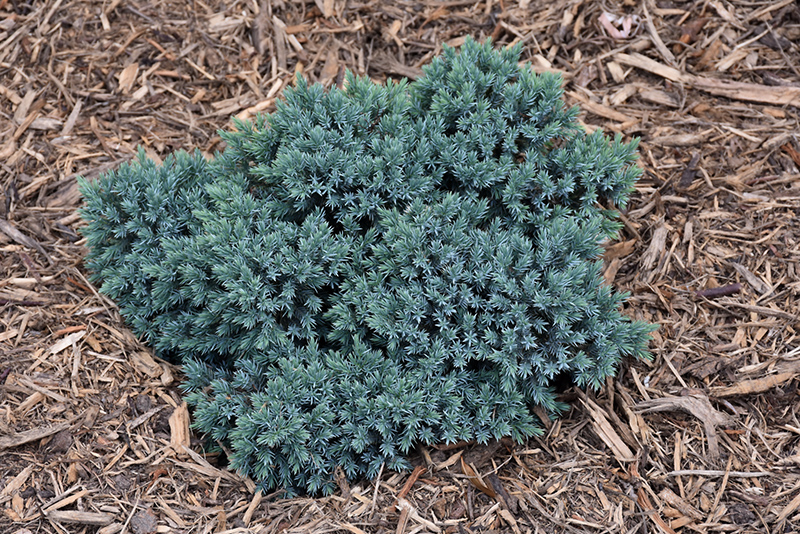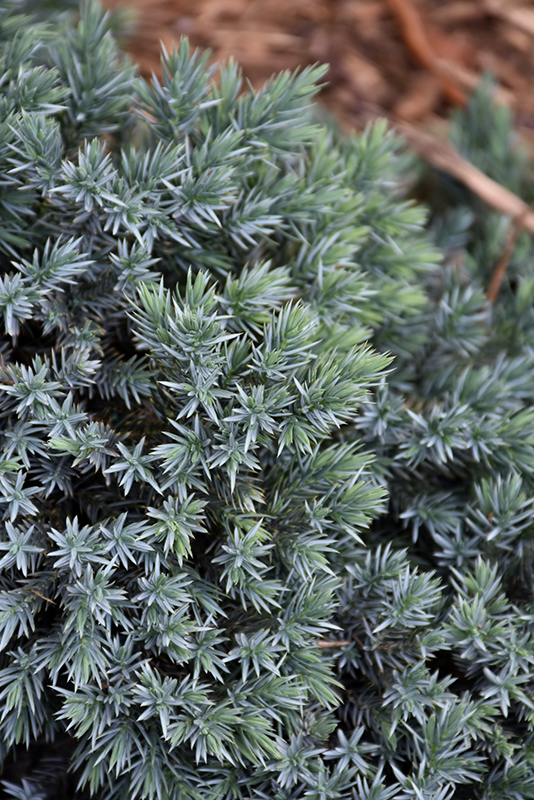3 feet
4 feet

4a
Singleseed Juniper
Blue Star Juniper is a dwarf conifer which is primarily valued in the garden for its ornamental globe-shaped form. It has attractive blue evergreen foliage which emerges silvery blue in spring. The needles are highly ornamental and remain blue throughout the winter.
Blue Star Juniper is a dense multi-stemmed evergreen shrub with a more or less rounded form. It lends an extremely fine and delicate texture to the landscape composition which should be used to full effect.
This is a relatively low maintenance shrub, and is best pruned in late winter once the threat of extreme cold has passed. It has no significant negative characteristics.
Blue Star Juniper is recommended for the following landscape applications;
- Mass Planting
- General Garden Use
- Groundcover
Blue Star Juniper will grow to be about 3 feet tall at maturity, with a spread of 4 feet. It tends to fill out right to the ground and therefore doesn't necessarily require facer plants in front. It grows at a slow rate, and under ideal conditions can be expected to live for approximately 30 years.
This shrub should only be grown in full sunlight. It is very adaptable to both dry and moist growing conditions, but will not tolerate any standing water. It is considered to be drought-tolerant, and thus makes an ideal choice for a low-water garden or xeriscape application. It is not particular as to soil type or pH. It is highly tolerant of urban pollution and will even thrive in inner city environments. This is a selected variety of a species not originally from North America.

